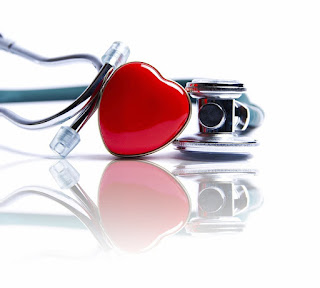 |
| Learn how to read your symptoms. |
Heart disease is the number one killer of women in the United States, but the symptoms are often ignored until it’s too late. Despite various warning signs, men and women can experience pain differently, which can make it harder to diagnose.
For instance, men are known to feel extreme pressure like a few thousand pounds of weight on their chest. On the other hand, women may not even feel any chest pressure, despite suffering a heart attack. However, there are symptoms that you should be aware of because they could save your life.
The first is extreme exhaustion. Women often excuse excess fatigue because of their full schedule of juggling home and work as a normal part of life. Yet, when you feel unusually drained despite taking it easy, then this is your clue to see your doctor.
Dizziness can also indicate a heart attack is looming in your future.
Another sign to pay attention to is if you become short of breath doing normal things that you do every day.
Feeling nauseated a lot and blaming it on acid reflux is something that needs to be checked out, not left alone.
Another clue is upper abdominal pain that you might dismiss as gas or a gynecological issue.
Of course, you could feel heavy pressure in your chest, but this not always the case for some women. This type of intense pain spreads from the upper back and shoulder to the neck and jaw.
If you notice any of the above, then it’s important to see your doctor and get tested. In fact, ask for a complete blood count test (CBC) to find out.
Your normal numbers of the following should read:
1. Total Cholesterol–under 200
2. LDL or Bad Cholesterol–under 100
3. HDL or Good Cholesterol–50 or above
4. Triglycerides–under 150
5. Blood Pressure–under 120/80
6. Fasting Glucose–under 100
This information is not meant to diagnose, but educate and encourage you to get a checkup by your doctor at least once a year. Women often neglect themselves because they feel they’re too young to have anything serious like heart disease happen to them.
